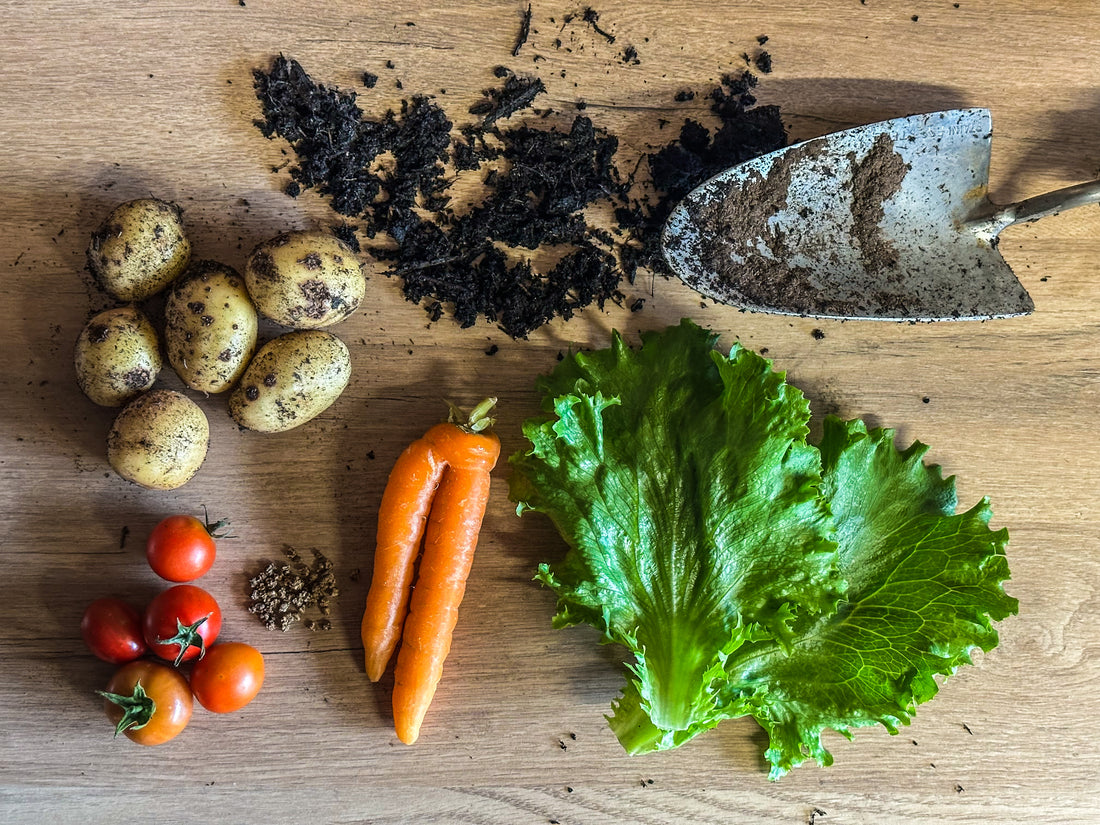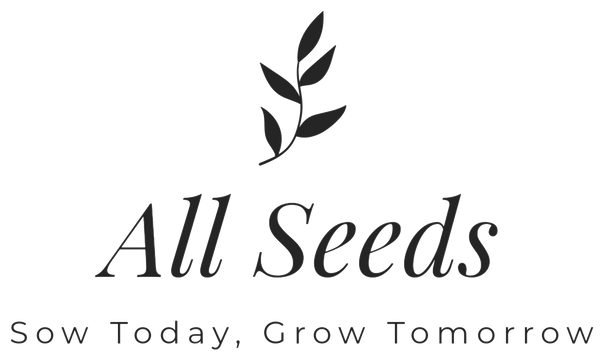
Reasons to grow your own vegetables
Have you ever thought about growing your own vegetables and herbs but weren't quite sure if it’s worth the effort? Maybe you’re worried it will be too time-consuming, or perhaps you think you don’t have enough space or know-how to get started. Well, let me tell you—growing your own food can be one of the most rewarding and enjoyable things you do, no matter your gardening experience or the size of your space. Let’s dig into why more people are turning to their gardens for fresh produce and how you can get started, too!
1. It Tastes Better—Seriously!
We all know that food fresh from the garden just tastes better. When you grow your own vegetables and herbs, you're picking them at their peak ripeness, which means they’re bursting with flavour. Compare that to shop bought produce, which is often picked early to survive shipping, and you'll notice a big difference. Imagine tossing fresh, sweet tomatoes into your salad or snipping a handful of basil right before making pesto. It’s a game-changer for your cooking.
2. It’s Healthier and Cleaner
When you grow your own vegetables and herbs, you control what goes into them—no need to worry about harmful chemicals or pesticides. Store-bought produce is often treated with synthetic fertilisers, herbicides, and pesticides to maximise yield and keep produce looking fresh for longer periods. Even organic options sometimes use approved chemicals that you might not be aware of. By growing your own, you can choose to go completely natural or organic, ensuring that what you eat is as clean and chemical-free as possible. Plus, you'll have peace of mind knowing exactly what’s going into your food from seed to harvest.
3. Save Money in the Long Run
Yes, there’s a little upfront cost when starting a garden—buying seeds, soil, and a few basic tools—but once your garden is established, it can save you money in the long run. Seeds and seedlings are relatively cheap, and with just a little effort, you can be harvesting produce for months. Compare that to how much you spend on fresh herbs, salad greens, or other vegetables every week, and you’ll quickly see the savings add up.

Some of our home-grown Maris Piper potatoes from this year
4. It’s a Sustainable Choice
Growing your own food is one of the easiest ways to reduce your carbon footprint. Think about it: no packaging, no transportation, and no food waste. You can pick what you need, when you need it, which means less food going to waste. Plus, if you compost kitchen scraps, you’re creating a lovely cycle that feeds your garden and keeps food waste out of landfills. And unlike large-scale farming, you won’t be relying on synthetic fertilisers that can pollute soil and waterways. It’s a small but meaningful step toward living more sustainably.
5. You Know Exactly What You’re Eating
When you’re the grower, you control everything that goes into your food. You know what kind of soil you’ve used, whether it’s organic or not, and if you choose to avoid chemical pesticides or fertilisers. In contrast, mass-produced store-bought veggies and herbs often come from farms that use chemical fertilisers and pest control methods to increase yield and shelf life. Growing your own gives you the power to keep everything natural, ensuring you and your family eat fresh, clean produce.
6. Great for Your Mental Well-Being
There’s something really special about tending to a garden. It’s calming, therapeutic, and helps you connect with nature. Studies have shown that gardening can reduce stress, improve mood, and even help with anxiety or depression. It’s also a great form of light exercise that gets you moving and spending time outdoors. The simple act of nurturing plants and watching them grow brings a unique sense of accomplishment.
7. It Doesn’t Take Much Space
Think you need a big garden to grow your own food? Think again. Whether you’ve got a sprawling garden or just a sunny windowsill, there are plenty of options to suit your space. Herbs like basil, parsley, and chives can thrive in pots on a balcony or windowsill, while veggies like tomatoes, lettuce, and radishes can easily grow in raised beds or containers. Even if you’re short on space, you can still enjoy homegrown produce.

Our container grown Strawberries went down a treat!
8. It’s Fun and Educational
If you’ve got kids, gardening is a wonderful way to teach them where food comes from and get them involved in the process. Kids love planting seeds, watching them grow, and harvesting the fruits of their labor. It’s a hands-on way to learn about nature, sustainability, and even a bit of patience. Plus, they’re more likely to eat their veggies when they’ve grown them themselves!
9. You’ll Have More Variety
When you grow your own vegetables and herbs, you can experiment with different varieties that aren’t always available at the supermarket. Fancy growing purple carrots or heirloom tomatoes? How about exotic herbs like lemongrass or Thai basil? You can grow exactly what you want, tailoring your garden to suit your tastes and culinary adventures.
10. Sharing with Others
There’s nothing more satisfying than sharing your homegrown produce with family, friends, and neighbours. When you have an abundance of tomatoes or herbs, it feels great to spread the love and give others a taste of what you’ve grown. Gardening has a way of building community, whether it’s through sharing tips or produce with those around you.
Ready to Get Started?
Growing your own vegetables and herbs doesn’t have to be complicated. Start small with easy-grow plants like lettuce, radishes, basil, or chives, and you’ll be harvesting in no time. Whether you’re aiming for a full veggie patch or a few pots of herbs, the rewards are endless. Give it a try—you might just discover a new hobby that benefits your taste buds, your health, and the planet.
Happy gardening!
